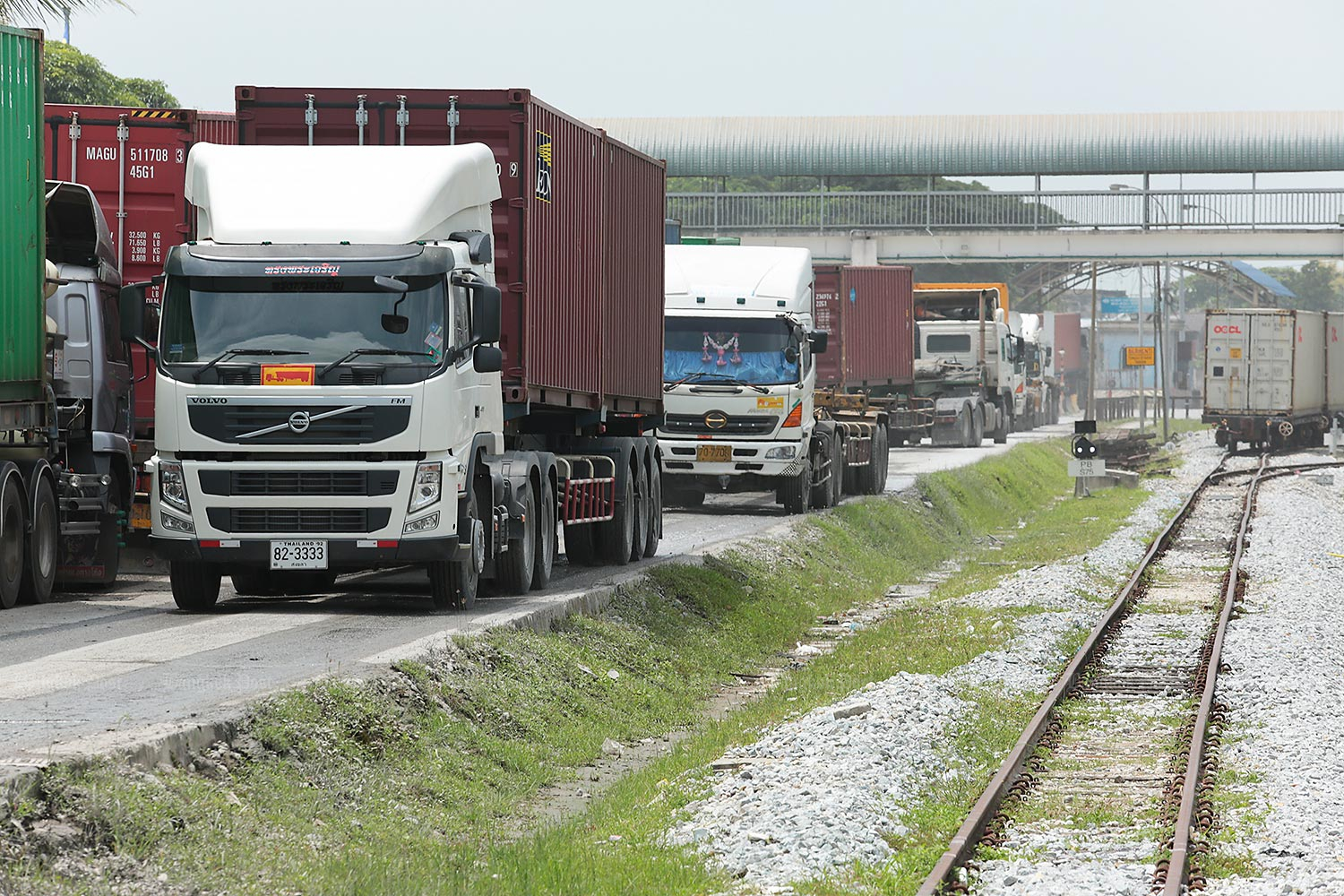
The private sector will ask the government to speed up introducing the same practices for logistics procedures nationwide that now exist in a patchwork applied differently across various provinces, as the current arrangement is causing mayhem in the logistics process.
Suphan Mongkolsuthree, chairman of the Federation of Thai Industries, said the same practices nationwide are desperately needed because each province or checkpoint has come up with different requirements.
He cited some provinces and checkpoints asking for invoices and goods purchase orders, while some require a certificate from the Fishery Department for fishery products.
Prime Minister Prayut Chan-o-cha announced on March 24 an emergency decree that came into force on March 26 and runs through the end of April.
A curfew was later added, banning all people nationwide from leaving their home from 10pm to 4am, from April 3 until further notice.
The measures were put in place to contain the spread of the coronavirus outbreak.
Logistics activities, however, are still allowed to ensure a sufficient supply of goods.
"So far, the mess is yet to cause a shortage of goods and food, but to facilitate logistics procedures and make logistics and delivery services smoother, the government should announce the same practices as soon as possible," Mr Suphan said.
He said the private sector is also worried that more provinces will announce lockdowns and add more obstacles for logistics services.
Mr Suphan expressed concern about the latest aid measures for small and medium-sized enterprises (SMEs), saying the measures may be impractical if commercial banks still require collateral to lend to those enterprises.
The cabinet on Tuesday passed an executive decree allowing the Bank of Thailand to extend 500 billion baht in soft loans at 2% annual interest for two years with a six-month interest-free period to SMEs for a credit line of no more than 500 million baht each.
Commercial banks and specialised financial institutions will also offer six-month deferment periods for SMEs with a credit line of up to 100 million baht each.
Mr Suphan proposed the government capitalise on the opportunity by moving some services online, particularly for business licence permissions. This will help reduce red tape, cut operating costs and promote social distancing.
Kalin Sarasin, chairman of the Thai Chamber of Commerce, agreed that logistics problems are the top priority of the government.
He said the government should also apply a special mobile app to track and trace coronavirus infections.
The chamber is requesting the government offer an automatic extension of work permits and visas for foreigners who work in Thailand for 2-3 months during the crisis.
According to Mr Suphan, such proposals will be raised at the first meeting of the advisory committee to be held on Monday.
Gen Prayut on April 8 ordered the formation of the advisory committee chaired by Thosaporn Sirisamphand, secretary-general of the National Economic and Social Development Council (NESDC), with 13 other members from the public and private sectors.
According to Mr Thosaporn, the government wants to hear from the private sector about the government's existing measures and suggestions about the use of 1 trillion baht in loans to be secured according to the recently issued royal decree to create the best benefit of the loans.
"The government hopes the private sector proposes additional opinions about existing relief measures to cope with Covid-19's impact and a rehabilitation plan for the economy after the deadly virus ends," he said.
The NESDC plans to hold advisory committee meetings every one or two weeks before submitting proposals to the prime minister.
Danucha Pichayanan, the NESDC's deputy secretary-general, said the government set up the advisory committee in order to make sure officials have sufficient information and an efficient plan to cope with the outbreak.